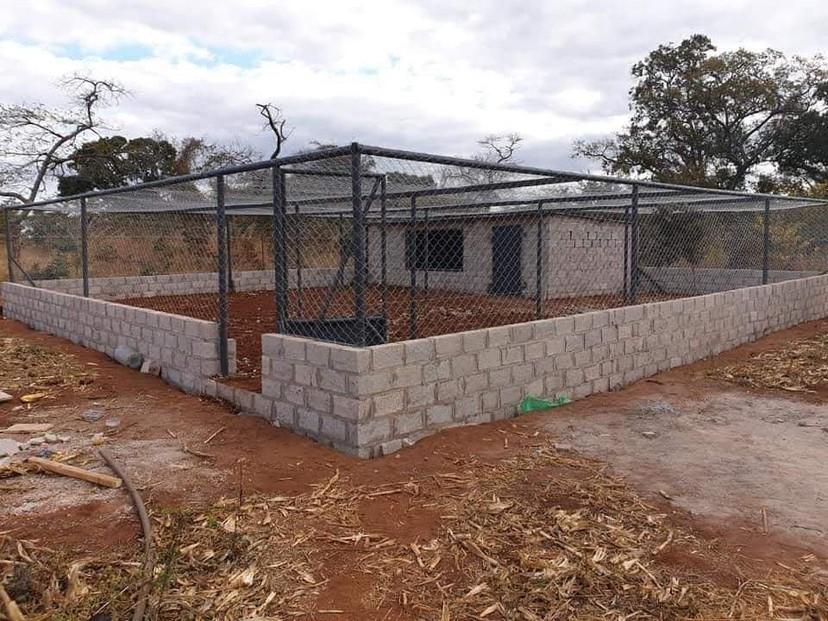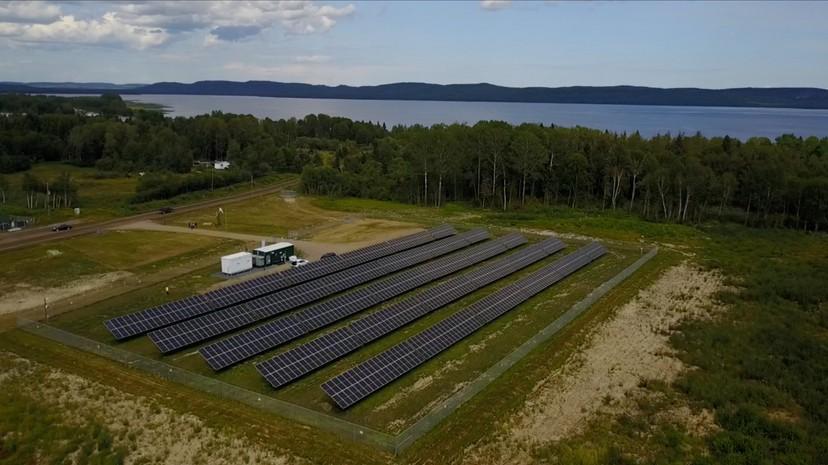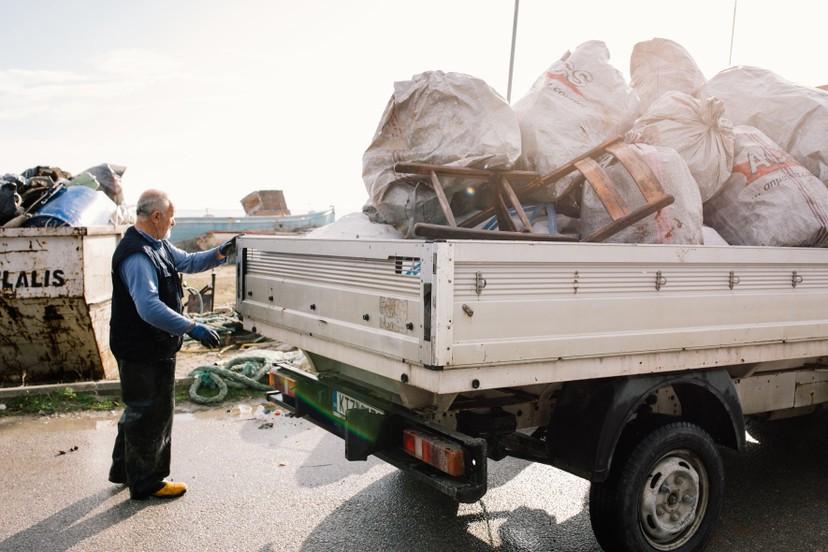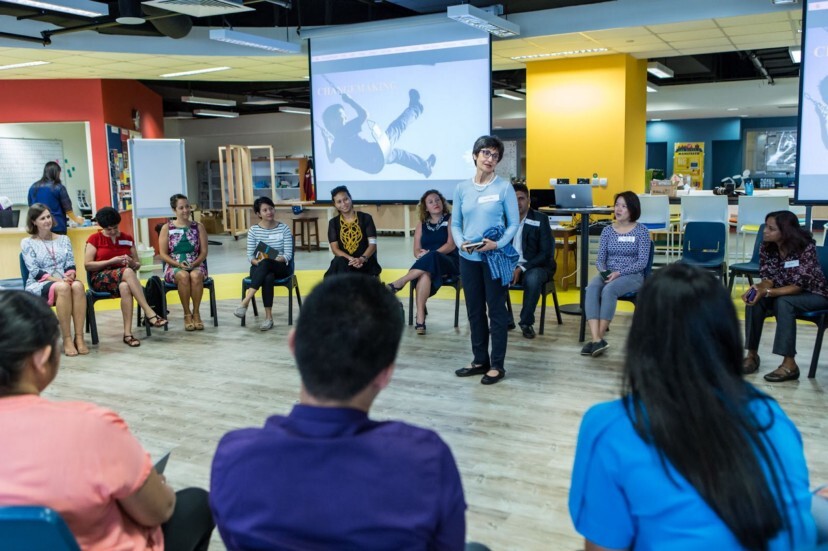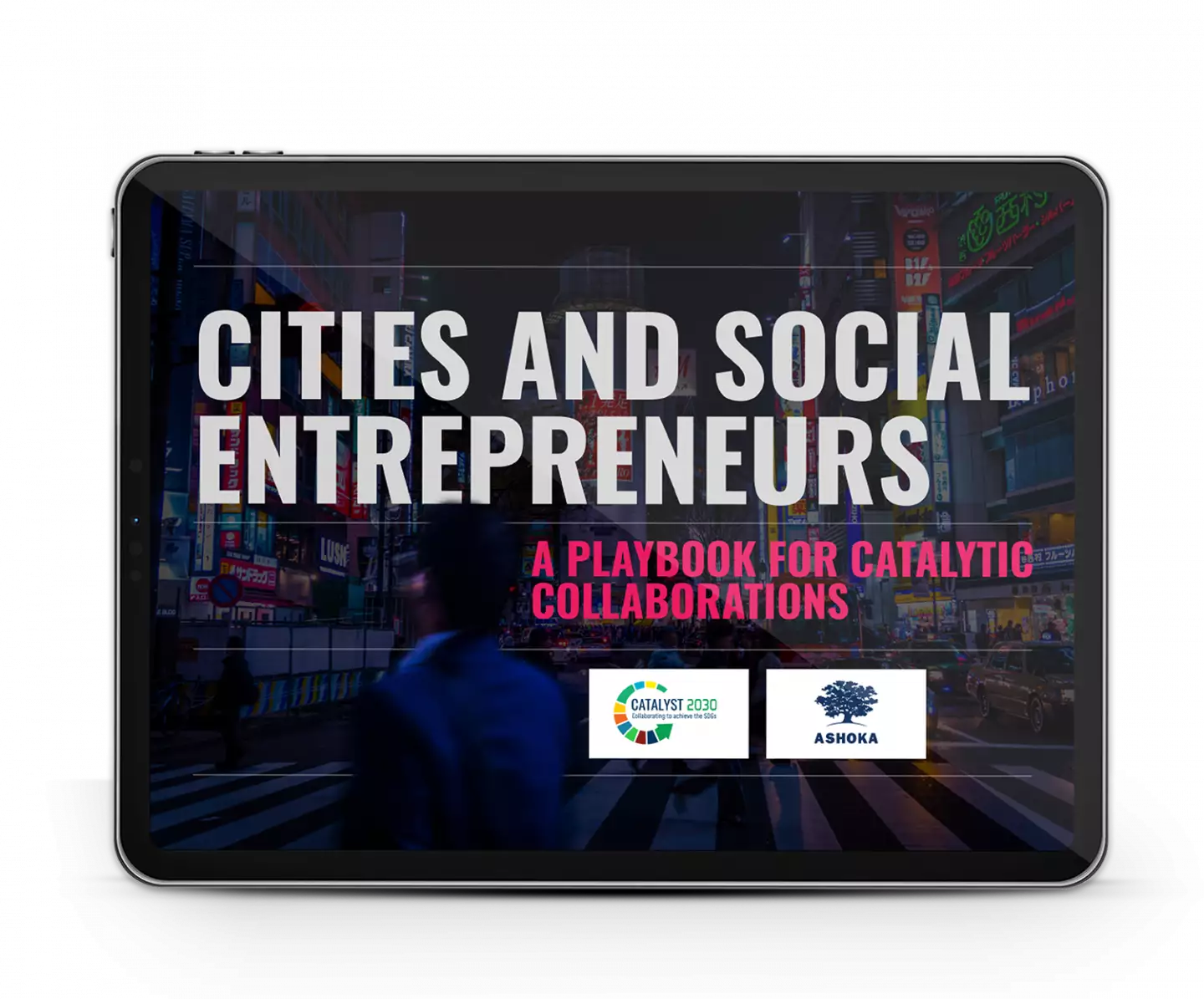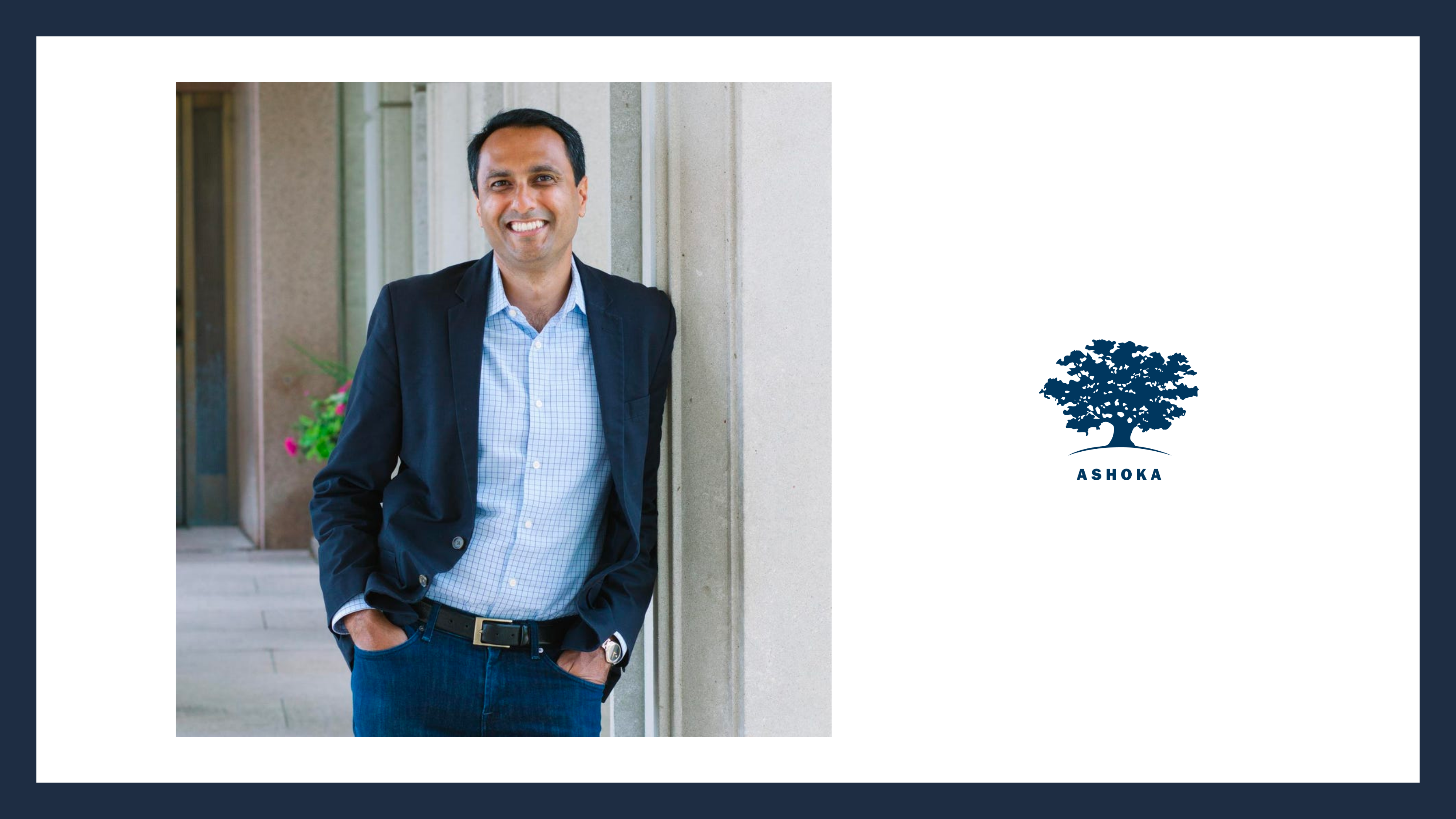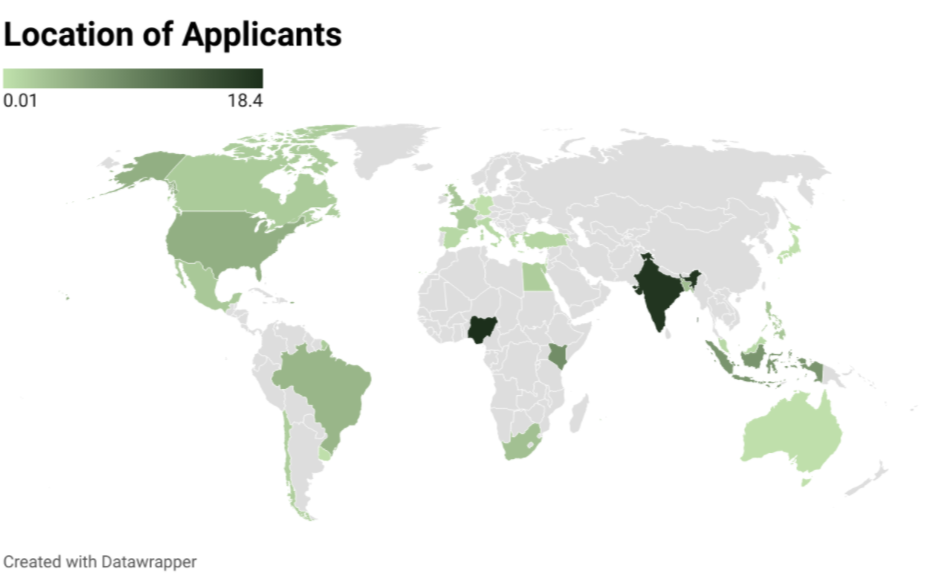
By Karsten Beling and Sarah Holcomb
What will it take to transition to a green economy? It requires looking beyond headline-catching technologies and think tanks for answers. Environmental solutions must take root in communities.
Across the globe, changemakers are already responding. Social entrepreneurs are helping their neighbors access skills and contribute to both a thriving livelihood and a livable planet. When these leaders pioneer new ways of sustainable fishing, managing electronic waste, or designing energy microgrids, they ensure that each new solution is owned by the community and creates opportunities that lead to greater wellbeing, safety, and sustainability.
Who are these social innovators on the front lines? Ashoka and HSBC launched the 2021 Green Skills Innovation Challenge to find out. We heard from nearly 350 organizations that are connecting people with the skills needed to make the transition to a Green Economy possible.
We heard from changemakers in 31 countries, the majority in Africa and South Asia, working in places like Nigeria, India, Brazil, Indonesia, Kenya, France, and the U.S. They are working on issues from food waste to a just energy transition (and more often than not, more than one issue). In all of the winning entries — x% to be exact — , we noticed a common theme: a community-based approach, where people fully participate in the solutions that impact their lives.
Here are a few of their stories.
Innovating on the farm
When David Illah joined SCORE Community Based Organization, he was drawn by the project’s vision: “We will not farm like our parents.”
“The whole concept,” says David, is “in the near future, the generations that are coming…will not be able to do the kind of agriculture we do.”
Eager to innovate and improve quality of life in his community in rural Kenya, he turned his attention to local “gifting culture,” particularly the traditional practice around giving hens, and brought a group of stakeholders together to discover an income-generating enterprise around hen gifting to holistically support indigenous poultry farmers. That’s how the Smallholders Poultry Agribusiness Development (SPADE) initiative was born.
Image courtesy of SPADE
SPADE focuses on equipping community members — particularly women and young people — with the skills to raise hens including vaccinating and caring for the chicks, and eventually run their own small-scale poultry farms. The project starts in “circles” of individuals who each receive 5 chicks and support each other throughout the process. Each person contributes money back to the project, keeping the rest, as they embark on becoming small-scale poultry farmers. The centralized slaughterhouse means that community members can trace where their meat comes from, reducing risk of contamination. The project is rooted in relationships across the community, prioritizing peoples’ wellbeing.
Green skills, David says, “are very important because we need to learn and grow and leave the world better than we found it. And the only way out is to be able to be creative.”
Meanwhile, also in Kenya, Dysmus Kisilu is creatively tackling a different problem: perishing produce. He learned from his grandmother, a farmer, that harvested food goes bad under the sub-Saharan sun. Smallholder farmers — many of whom are women — needed a better system to store their perishable harvest in order to sustain thriving businesses and feed their families.
So Dysmus developed portable fridges powered by the sun. The innovation dramatically extended how long harvested foods could last, from just two days to more than 40 days. This renewable technology is not only environmentally sustainable, but it also creates other kinds of sustainability — building the economic and social resiliency of rural communities in the face of a rapidly changing climate.
Bringing agency to clean energy
In Canada, Kiashke Zaaging Anishinabek — or Gull Bay First Nation — relied on truck-transported diesel for power, which emits a high volume of Greenhouse Gases, not to mention it’s expensive and dirty. The community developed a solution, the first of its kind in Canada: a 100% community-owned solar-storage micro grid which replaces 35% (and growing) of diesel. With this powerful clean energy innovation, the community is leading additional clean energy (renewable EV charging) and energy efficiency (housing) projects. It’s one of dozens of Canadian Indigenous communities that have developed or are developing renewable energy micro grids.
Photo courtesy of Indigenous Clean Energy
The Canada-based organization Indigenous Clean Energy (ICE) shares these experiences with Indigenous communities around world. Three Island Energy, a new learning collaborative launched by ICE, shows how renewable energy microgrids are being successfully introduced around the world by Indigenous and local communities, often with partners, to accelerate clean energy futures. Not only does this provide jobs for the emerging green economy for global Indigenous communities it also adds to the global transition to renewable energy.
Building a circular economy at sea
Courtesy of The Mediterranean Cleanup
In Greece, Lefteris Arapakis noticed local fishermen bringing up plastic with their catch that would then be thrown back into the sea. He created The Mediterranean Cleanup to combat this marine plastic pollution but also encourage sustainable fishing methods while supporting the local fishing economy.
Arapakis set out to train these fishermen in sustainable fishing techniques and then set up a system in which a team would go out and collects plastic waste from fishing boats at ports to then be upcycled and recycled. Arapakis’s community-driven solution creates a circular economy that is fit for a green future.
Solving multiple problems…and filling in the gaps
The power of many of these solutions is that they are addressing multiple issues at once — for example, cutting down on emissions or food waste while also creating more economic opportunity for historically excluded groups. The Green Economy is already here — we’re working to ensure everyone is included.
